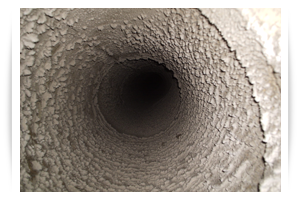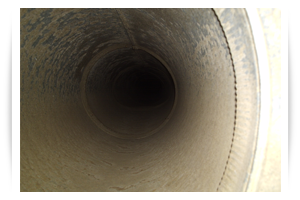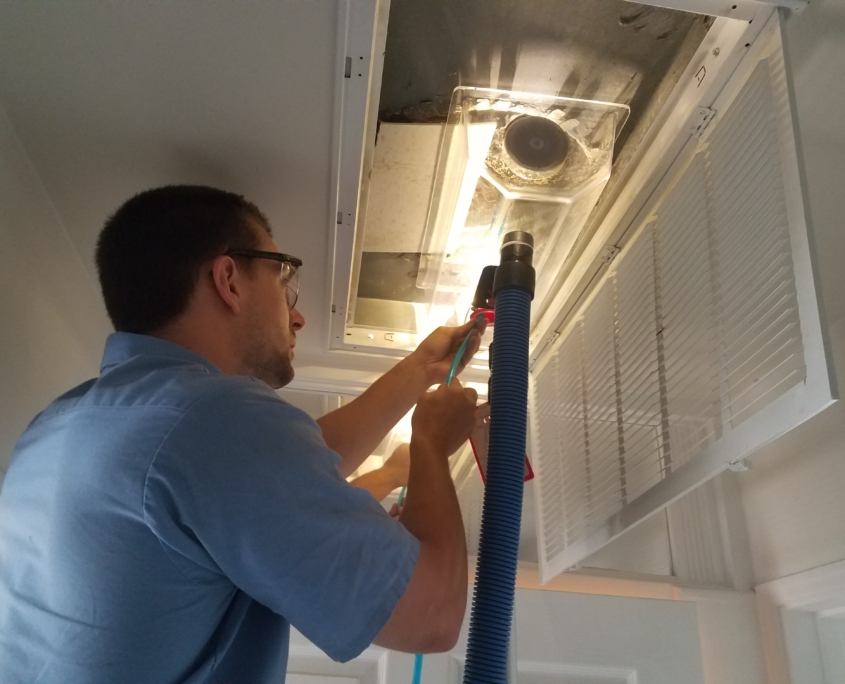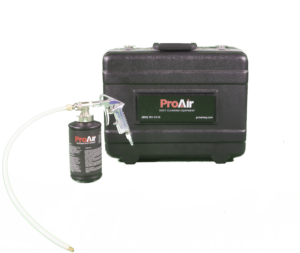BioClean Duct Sanitizing Sprayer
ProAir’s BioClean Duct Sanitizing Sprayer applies duct sanitizer directly to the duct walls and allows more Bio-chemical to kill more bacteria than the traditional Fogger unit. Our system allows you to control the amount of Bio-chemical to the areas that are most important. The “end-of-line” ducting at the register is where the air pressure is at its lowest and the the highest concern of bacterial build up. for this reason, the need for increased Bio-Chemical is critical for proper duct sanitizing.
IS IT WORTH IT TO GET YOUR AIR DUCTS SANITIZED?
When I get my ducts cleaned I am always asked if I want to have them sanitized. Is that really beneficial?
Great question. The answer is no and yes.
No. There is little benefit to sanitizing a duct system the way that most companies perform this service or the solution that is used to do so. Most companies spray a scented solution, maybe one that is or is not a disinfectant. If the proper principals of sanitizing are not followed, little benefit is obtained. This is why many companies include this service at no charge. You got what you paid for.
Yes. This service when done properly has great benefit. Your duct system is “The air you breath system”. That system is dark, dusty, sometimes humid and during some seasons not active. All these factors are prime for growth of mold and bacteria.
Factors for effective application of a sanitizing agent are:
1. Applied to a clean surface. (After proper cleaning)
2. Registered, effective Sanitizing Air Ducts at appropriate dilutions and method.
3. Dwelling time according to solution used. (5 – 20 minutes)
Without these principles being applied, it is not worth paying for this service.
If a duct cleaner includes this in their cleaning package then they are most likely simply spraying a deodorizer or sanitizing agent in the vents. You are getting what you paid for, a false sense of clean.
The company should apply at least a 15 step process to ensure an effective application of a quality sanitizing agent. The sanitizing agent needs to be fogged into your entire system and allowed time to dwell.
As your mother and mine taught “Anything worth doing is worth doing right” otherwise save your money.
AIR DUCT CLEANING AND SANITIZING AIR DUCTS
 If you want a clean and healthy air duct system in your home, the entire system needs to be cleaned end-to-end. We use high powered external duct vacuums, pressure hoses and cleaning tools to ensure a thorough job. When you choose a duct cleaner make sure you compare methods, reputations and thoroughness of cleaning and complete upfront costs.
If you want a clean and healthy air duct system in your home, the entire system needs to be cleaned end-to-end. We use high powered external duct vacuums, pressure hoses and cleaning tools to ensure a thorough job. When you choose a duct cleaner make sure you compare methods, reputations and thoroughness of cleaning and complete upfront costs.
How we clean your ducts:
- A strong vacuum system will be attached to the supply side of your furnace plenum then the return side.
- Your heating system is separated into 2 zones “supply” and “return” and the air filter is removed (as a result the vacuum can work more effectively, resulting in better suction throughout the entire system).
- All of the supply registers and return ducts are sealed to create a strong suction.

- A single register is opened and a compressed air (175psi) snake/whip is used to “compress air wash” the entire length of the supply duct while the vacuum pulls the dislodged debris out of the system. A number of cleaning heads are used to insure that the entire duct gets cleaned. The register is then resealed and the process is repeated on all the registers in the system.
- The “trunk line” (main duct that all the supply lines attach to) is cleaned using the same process.
- Furnace filters are reinstalled after cleaning, all registers are unsealed, zone separators removed along with the vacuums from the plenum.
- If desired, Sanitizing Air Ducts is then applied using an atomizer at each individual supply branch and fogged throughout the duct work. We use a product called “EnviroCON” which, upon application eliminates odors at their source through a chlorine dioxide release process that destroys organisms at the origin. EnviroCON is an EPA registered, safe, low toxicity formulation which uses no perfumes or masking agents; it inhibits the growth of odor causing organisms as well as those organisms associated with mold, mildew and bacterial growth in the air and in HVAC systems.


